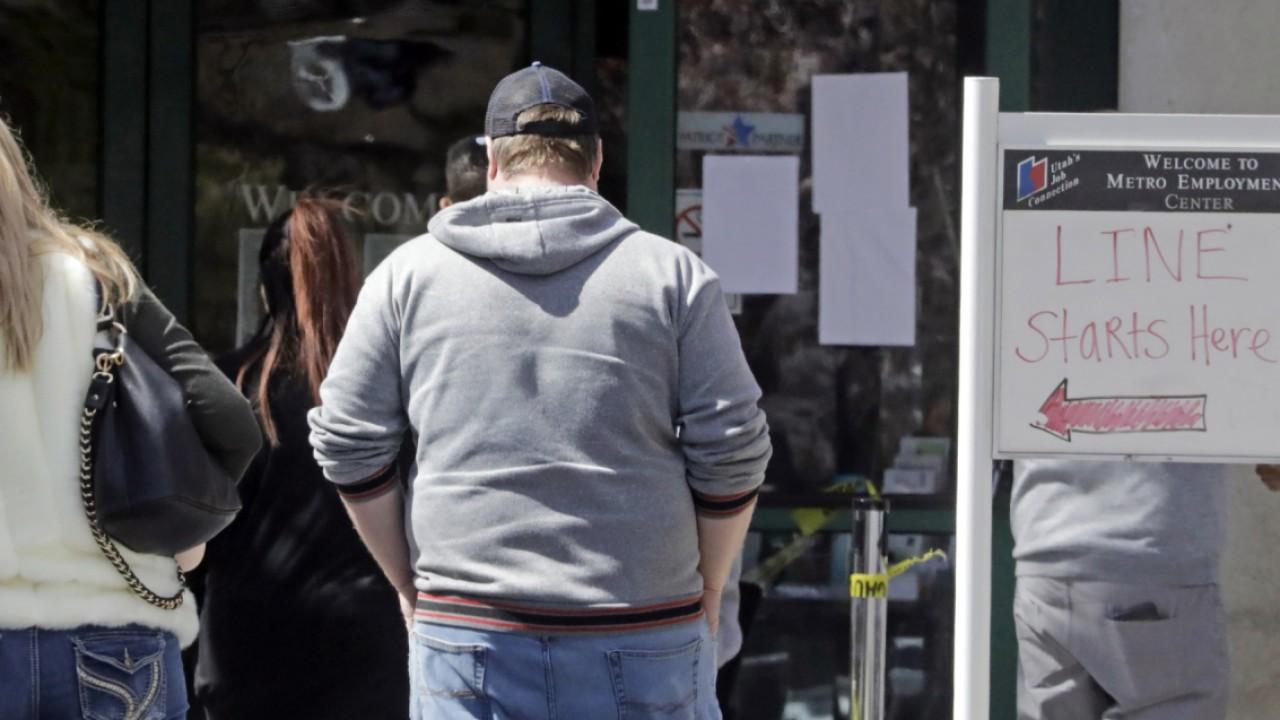$4 billion in annual economic benefits could pour into our economy with this simple move: Art Laffer
There is one sure way to speed up economic recovery
Recent jobs numbers confirm a sobering fact of today’s economy: as a direct result of the COVID-19 pandemic, America is facing a workforce crisis not seen for generations, with roughly 40 million Americans out of work at the recent lows of the economic downturn.
Those job losses, on top of the shifting plans to re-open various sectors of the economy, have placed America at a crossroads.
THESE 5 STATES SAW THE BIGGEST INCREASES IN UNEMPLOYMENT CLAIMS LAST WEEK
The cost of tens of millions of unemployed individuals seeking government assistance, rather than being gainfully employed, will place an unsustainable burden on the states.
Through programs like the Paycheck Protection Program and CARES Act, the federal government has implemented a large and unprecedented policy response to the economic downturn. But there is one sure way to speed up economic recovery: by compressing the amount of time it takes to get a job, creating a more efficient labor market and leaning on market innovation to drive the process.
BIDEN'S CLIMATE PLAN IS A DISASTER FOR AMERICAN WORKERS
Even during healthy economic periods, the hiring process costs employers an average of 42 days and over $4,000 per hire.
Full implementation of digital credentialing infrastructure would benefit the U.S. economy to the tune of $437.6 billion per year.
The COVID-19 pandemic and the ensuing economic downturn has brought increased urgency to reduce the time between a worker losing a job and starting a new employment opportunity — a concept known as “frictional unemployment.”
A major component of frictional unemployment is a lack of fast, trusted verification of credentials, licenses, previous employment history, and reference and background checks.
One specific action endorsed by the American Workforce Policy Advisory Board to curb the economic damage is a “digital open skills system for American workers and students that will align the skills and competencies needed to effectively connect education-to-work and guide learners and workers to available opportunities.”
My team recently concluded a report detailing the vast economic benefits of digital solutions that can dramatically shorten periods of worker unemployment, particularly in the COVID-19 economic recovery.
CLICK HERE TO GET FOX BUSINESS ON THE GO
In it, we estimate that, using employment metrics from the lows of the pandemic-induced economic downturn, full implementation of digital credentialing infrastructure would benefit the U.S. economy to the tune of $437.6 billion per year.
Digital credentialing is not new – but across-the-board adoption of this would create a standard, verifiable system containing digital records of a worker’s credentials (such as educational background, employment history, training history, and certifications held).
Employers could instantly verify prospective employees’ merits — promoting efficiency and significantly reducing the amount of time it takes to fill employment vacancies.
The notion of interoperable learning records (ILRs) has been taking hold across the country, and there are already private-sector companies building easy-to-deploy infrastructure.
These systems allow states to take swift action and get people the credentials they need to get to work quickly. My recommendation is that policymakers at all levels of government adopt digital solutions such as ILRs.
As Tomer Kagan from Merit – a company building digital credentialing infrastructure for the public and private sectors – recently said to me, "One of the most important roles of credentials is that they create efficient marketplaces. Implementing ILRs on an end-to-end digital infrastructure lets entire industries operate programmatically and reliably – with trust, insight, and efficiency for all parties."
The sooner we can get unemployed Americans back to work, the sooner they’ll be gainfully employed, off government assistance and back to contributing as taxpayers — a win, win, win.
Arthur B. Laffer Ph.D., is chairman of Laffer Associates and has served as an adviser to Presidents Reagan and Trump. Dr. Laffer is a recipient of the Presidential Medal of Freedom.





















